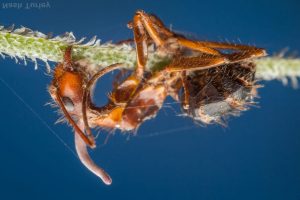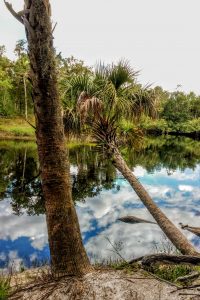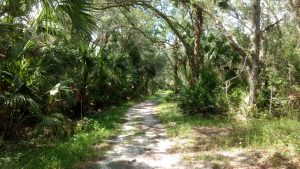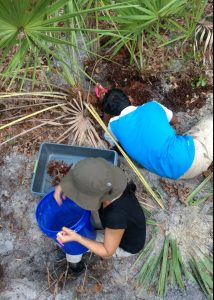 Parasitic manipulation of animal behavior
Parasitic manipulation of animal behavior
For millions of years, battles between parasites and their hosts have been taking place, in which each party is trying to get the upper hand. Such prolonged parasite-host co-evolution can result in complex phenotypes. Parasite adaptive manipulation of host behavior is a widespread example. Here, parasites use intricate strategies to manipulate their hosts’ behaviors such that they benefit parasite transmission. For many manipulative parasite-host interactions, their captivating natural history has been rather well-described. However, it remains a largely unanswered question how exactly manipulating parasites are able to hijack their hosts. Our research aims to bridge this knowledge gap by providing a deeper mechanistic understanding of parasitic behavioral manipulation. We ask how host behavior changes, which compounds parasites produce that can work as neuromodulators, and how these compounds can affect host behavioral pathways such that they result in altered behavioral phenotypes.
Model System: Behavior manipulating fungi (BMF) and their ant hosts
Parasites that modify host behavior to increase their own reproductive success are often referred to as “zombie-makers”. The so-called “zombie ants” are a widespread, evident example. When infected by fungi that hijack behavioral outputs, these ants start to wander, followed by climbing, and latching themselves to vegetation (via biting) to ease the wind dispersal of infectious spores [1,2]. Inducing hosts to ascend and bite are common themes among zombie-makers, which suggests that similar mechanisms for how parasites alter the behavioral phenotype of their host might be used [3,4]. Understanding this (naturally) corrupted chain of events towards the expression of an altered behavioral phenotype in the lab-amenable zombie ant system offers the chance to better understand how behavioral phenotypes evolve and are expressed [5]. As such, our lab mainly uses fungal insect parasites of the genus Ophiocordyceps to learn how certain microbes are able to control animal behavior. More specifically, we currently focus on Ophiocordyceps camponoti-floridani, a fungal species from Florida, which infects and manipulates the Florida Carpenter ant (Camponotus floridanus).

Research Approach
We like to approach our research from both the parasite and the host perspective, to ask questions that range from the gene and molecule level to the level of whole-organism phenotypes, to organismic functioning within an ecosystem. As such, we use an integrative approach in which we combine:
- Infection studies
- Behavioral analyses
- Genomics, transcriptomics and metabolomics tools
- Functional genetics and molecular microbiology techniques
- Field surveys and collections
Recent and ongoing research
Some of the research projects that we recently published or that are currently ongoing:
- We have sequenced the genomes of several ant-infecting Ophiocordyceps species [6,7], which are publicly available through NCBI and the Fungal Genomics Group at Utrecht University.
- Infection studies combined with behavioral observations and metabolomics analyses of the fungal secretome suggest that fungal manipulation of the ant brain is rather species-specific [8].
- Infection studies combined with behavioral observations and comparative transcriptomics analyses have led to the reporting of the very first candidate genes, fungal compounds, and ant pathways that could be involved in the fungal manipulation of ant behavior [7,9]. We are currently investigating these candidate genes and pathways using functional genetics approaches.
- Several recent studies suggest that biological clocks play an important role in the altered behaviors that we observe [e.g., 2,4,7,9,10]. We are currently investigating this hypothesis using various approaches, including quantitative behavioral analyses and transcriptomics [11].
- To learn more about the detailed natural history of our study system and ask questions about the adaptive nature of manipulated biting behavior, we are performing longitudinal field surveys.
- We are also discovering, describing, and sequencing new fungal species that we found to be associated with O. camponoti-floridani and C. floridanus.
References
- Andersen SB, Gerritsma S, Yusah KM, Mayntz D, Hywel-Jones NL, Billen J et al. (2009) The life of a dead ant: The expression of an adaptive extended phenotype. American Naturalist 174: 424-33
- Hughes DP, Andersen SB, Hywel-Jones NL, Himaman W, Billen J, Boomsma JJ. (2011) Behavioral mechanisms and morphological symptoms of zombie ants dying from fungal infection. BMC ecology 11:13
- Loreto RG, Araújo JPM, Kepler RM, Fleming KR, Moreau CS, Hughes DP. (2018) Evidence for convergent evolution of host parasitic manipulation in response to environmental conditions. Evolution 72(10), 2144-2155
- de Bekker C, Will I, Das B, Adams RMM. (2018) The ants (Hymenoptera: Formicidae) and their parasites: Effects of parasitic manipulations and host responses on ant behavioral ecology. Myrmecological News 28, 1-24
- de Bekker C. (2019) Ophiocordyceps-ant interactions as an integrative model to understand the molecular basis of parasitic behavioral manipulation. Current Opinion in Insect Science 33, 19-24
- de Bekker C, Ohm RA, Evans HC, Brachmann A, Hughes DP. (2017) Ant-infecting Ophiocordyceps genomes reveal a high diversity of potential behavioral manipulation genes and a possible major role for enterotoxins. Scientific Reports 7(1):12508
- Will I, Das B, Trinh T, Brachmann A, Ohm RA, de Bekker C. (2020) Genetic underpinnings of host manipulation by Ophiocordyceps as revealed by comparative transcriptomics. G3: Genes, Genomes, Genetics 10(7), 2275-2296
- de Bekker C, Quevillon LE, Smith PB, Fleming KR, Ghosh D, Patterson AD et al. (2014) Species-specific ant brain manipulation by a specialized fungal parasite. BMC evolutionary biology 14:166
- de Bekker C, Ohm RA, Loreto RG, Sebastian A, Albert I, Merrow M et al. (2015) Gene expression during zombie ant biting behavior reflects the complexity underlying fungal parasitic behavioral manipulation. BMC genomics 16:620
- de Bekker C, Merrow M, Hughes DP. (2014) From behavior to mechanisms: An integrative approach to the manipulation by a parasitic fungus (Ophiocordyceps unilateralis s.l.) of its host ants (Camponotus spp.). Integrative and Comparative Biology 54(2), 166-176
- de Bekker C, Will I, Hughes DP, Brachmann A, Merrow M. (2017) Daily rhythms and enrichment patterns in the transcriptome of the behavior-manipulating parasite Ophiocordyceps kimflemingiae. PLoS ONE 12(11): e0187170
Photo and Figure Credits: Nash Turley (top picture), Science Transmitter (figure, as published in [5])
 |
